5 Greek Islands that Shine in September
Discover Greece’s islands in September with...

Reworks Festival
You don’t have to study the data to see it. All you need is your ears. If Athens is the city that teaches musicians how to present themselves and paves the way for their national fame, Thessaloniki is the birthplace of new trends, an incubator for cultures and subcultures, rock bands, MCs and traditional Greek bards. In essence, it’s a place for voices that have something new to say. Some attribute this to size, reasoning that considerably shorter distances here, compared to Athens, create a more tightly knit community; others claim there’s just something in the air.
The city’s musical tradition goes back centuries, to the songs of Jewish refugees from Spain, to Balkan sounds and to influences from the Turkish community. Nevertheless, it wouldn’t be outlandish to claim that today’s lively and vibrant music scene in Thessaloniki originated largely from one place: during the German occupation (1941-1944), a young composer from Trikala, Vassilis Tsitsanis, ran the Tsitsanis ouzerie at 22 Pavlou Mela Street, where he also performed his music. An innovator in rebetiko music (popular urban songs that were until then associated with the criminal underworld), Tsitsanis would play a key role in its wider dissemination – through the quality of his music as well as through its shift into something milder and purer, which would come to be called laiko (urban folk music).
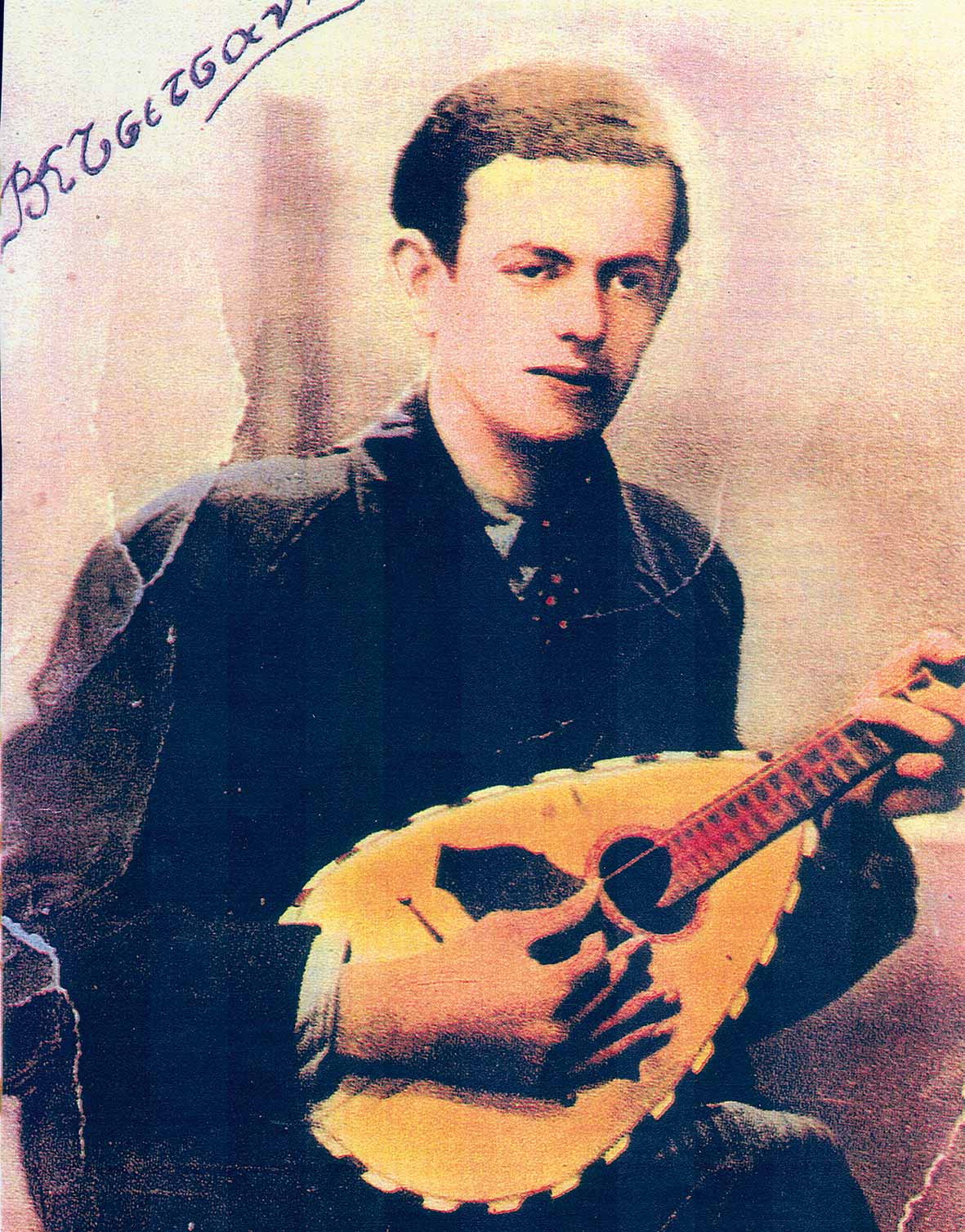
Vasilis Tsitsanis, a pioneer of rebetiko music who lived in Thessaloniki during the German Occupation, composing some of his best songs.
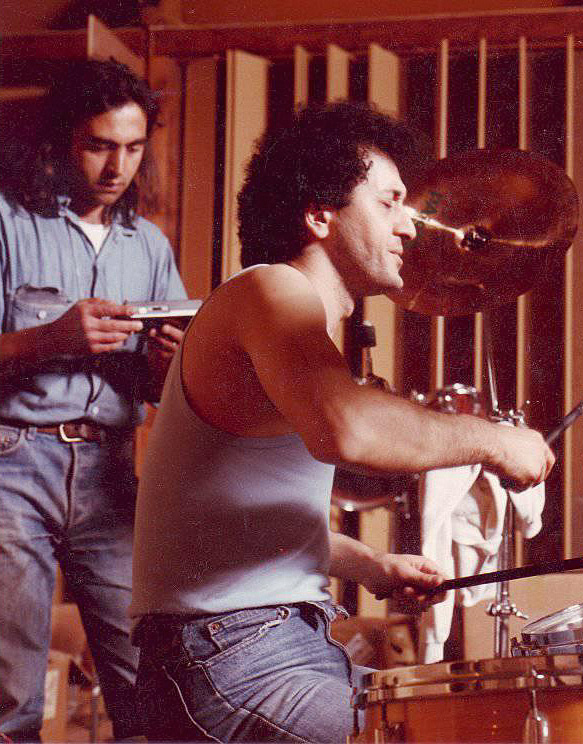
Nikos Papazoglou (left) working on intricate sounds with drummer Nikos Kapilidis at Agrotikon Studio, back in the 80’s.
Around the time that Tsitanis was performing his songs to the public for the first time, including tunes such as “Synefiasmeni Kyriaki” (“Cloudy Sunday”) that would become Greek classics, a future fan named Dionysis Savvopoulos was born on Iatrou Zanna Street. Influenced by the troubadours of the West (Bob Dylan, Frank Zappa, Georges Brassens), famous Greek composers as well as poetic legends in Thessaloniki, Savvopoulos would cause a stir of his own in Greek music, mainly in the late 1960s and early 1970s.
In the meantime, the city’s youth was having a blast at concerts by bands such as the Olympians, a pop group that would find some success beyond Greece’s borders. Nikos Papazoglou, a renowned figure who passed through this great band, would in following years have an important influence on the city’s music scene, both onstage and backstage. In addition to being the lead singer on the historic album “I Ekdikisi tis Gyftias” (1978), which revived Greek laiko music, Papazoglou introduced Sokratis Malamas, a singer beloved to this day, to the Greek public. Moreover, as a founder of and sound engineer at the Agrotikon studio, Papazoglou supported many local singers just starting out.
The city’s rock and punk rock scenes were particularly active during the 1980s and 1990s. Koromila Street was a meeting point for many underground musicians, a veritable hub for exchanging views and ideas. From this musical context came rock bands such as Tripes, Mora sti Fotia and Xilina Spathia, living rock’n’roll lifestyles, singing Greek lyrics and taking their music to large audiences without selling out.
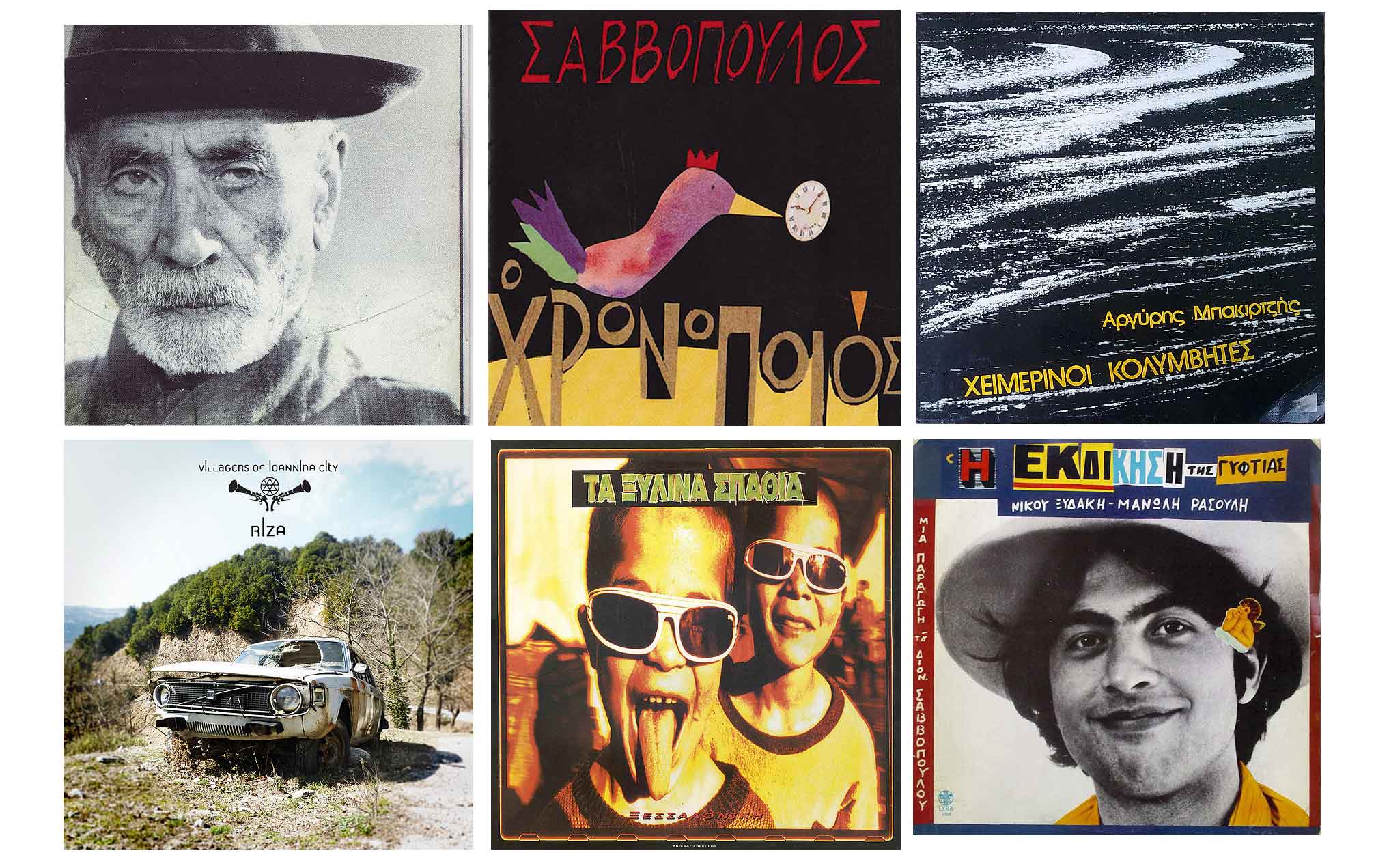
Today, Thessaloniki continues to contribute a variety of flavors to the feast that is Greek music. One of these is Souled Out, a band with a love for soul in its more pop version. Frontwoman Alexandra Sieti boasts an impressive voice and stage presence, and their songs, such as “Madness” and “Let me in your heart,” have become popular online. The Speakeasies’ Swing Band is another fun-loving group that dresses the part as it headlines swing dance parties. Other bands that have been making noise in recent years include The Banksters, Dynamind and Lemonostifel.
A number of groups that stand out are influenced by tradition and yet express themselves in a modern way. For example Largo, with lyrics addressing socio-political concerns, combines elements from Greek traditional music with electronic beats. Largo is headed by Kostantis Papakonstantinou, son of beloved musician Thanasis Papakonstantinou. The band Kadinelia, an acoustic duet that exquisitely combines Greece’s musical heritage with that of other lands, is another case in point.
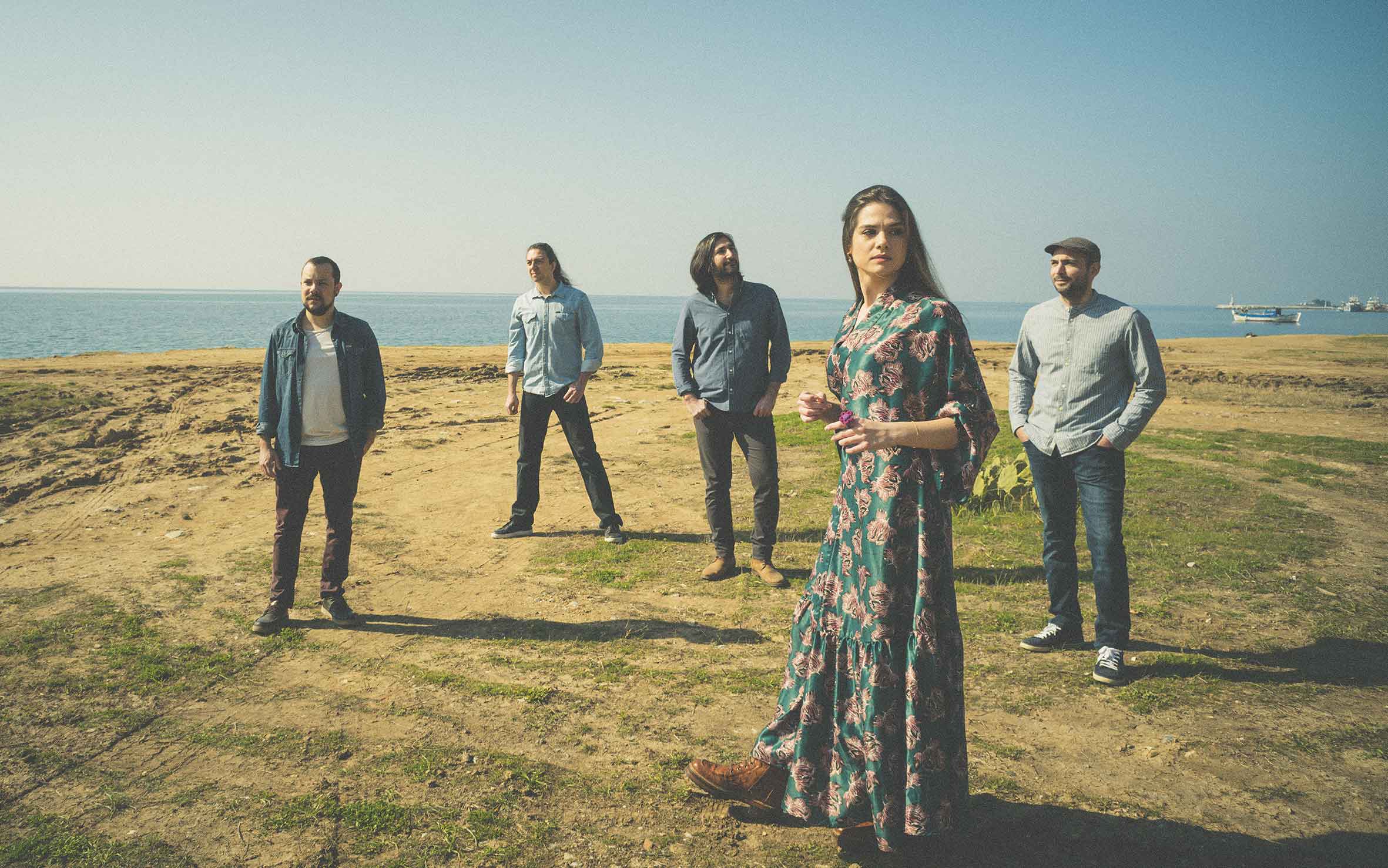
Souled Out
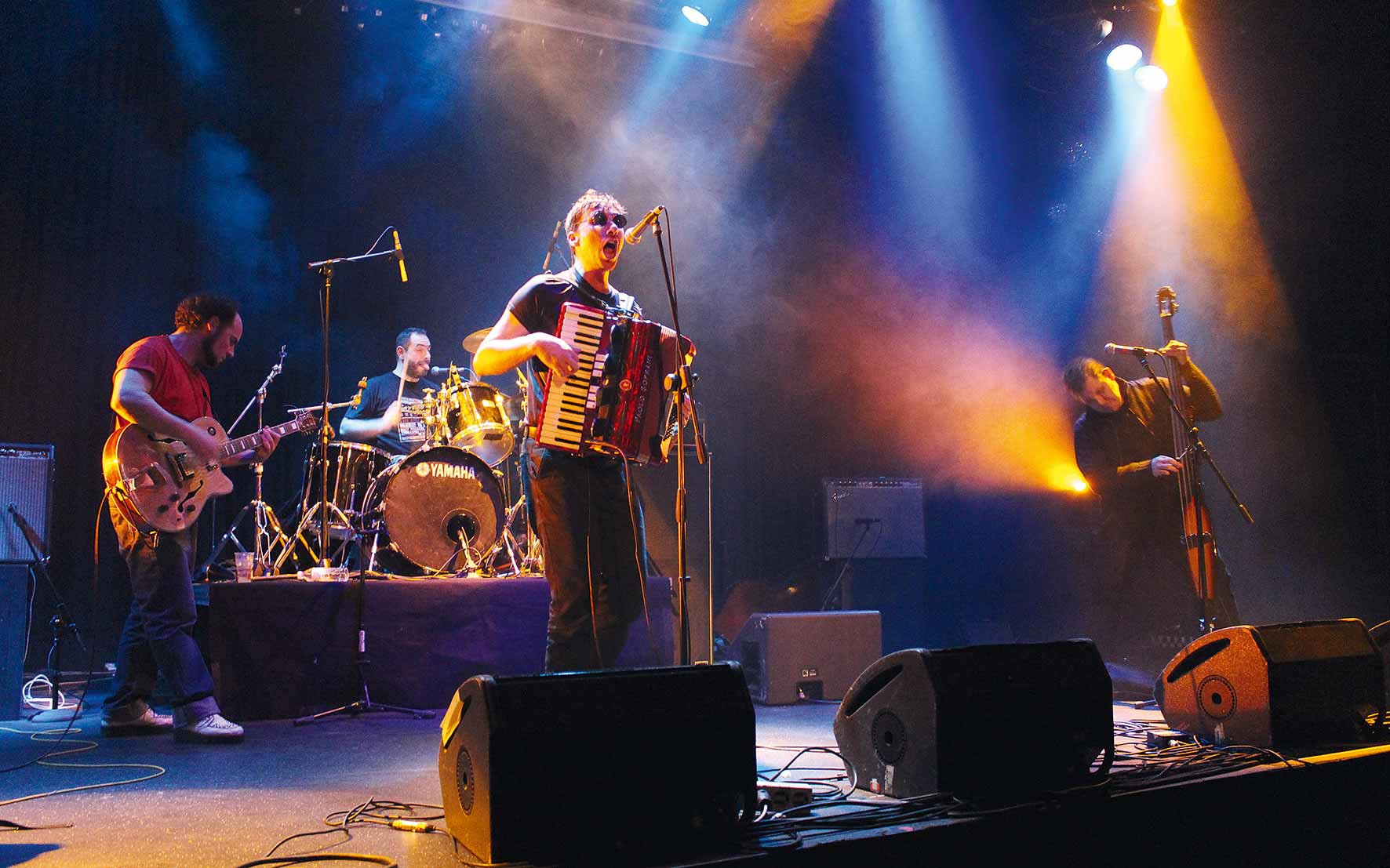
The Banksters
Of course, such bands could not share their message without the existence of appropriate performance spaces. While the pandemic will undoubtedly still have an effect on the arts this winter, Thessaloniki boasts many quasi-concert halls, such as Block33, the Principal Club Theater, Μilos and Fix Factory of Sound. There are also other locales that offer both live performances and food and drink, including Kafodeion, the Enfant Gâté in Guadeloupe concept restaurant, and the café Tzamala.
An urban multispace for culture and sports, WE is a meeting point for creative groups that also serves as a venue for concerts and music events such as the Balkan Fest and the Upnloud Festival. If there’s one festival, however, that constantly steals the show, it’s Reworks: every September, for the past 17 years, it has welcomed thousands of people from all over Greece and the world to explore and enjoy the latest trends in electronic music.
Of course, it’s not all just homegrown talent that entertains in Thessaloniki; popular bands and solo performers from abroad often perform in the city, particularly in the summer when they fill large outdoor spaces such as Theatro Gis and the outdoor stage at Moni Lazariston.
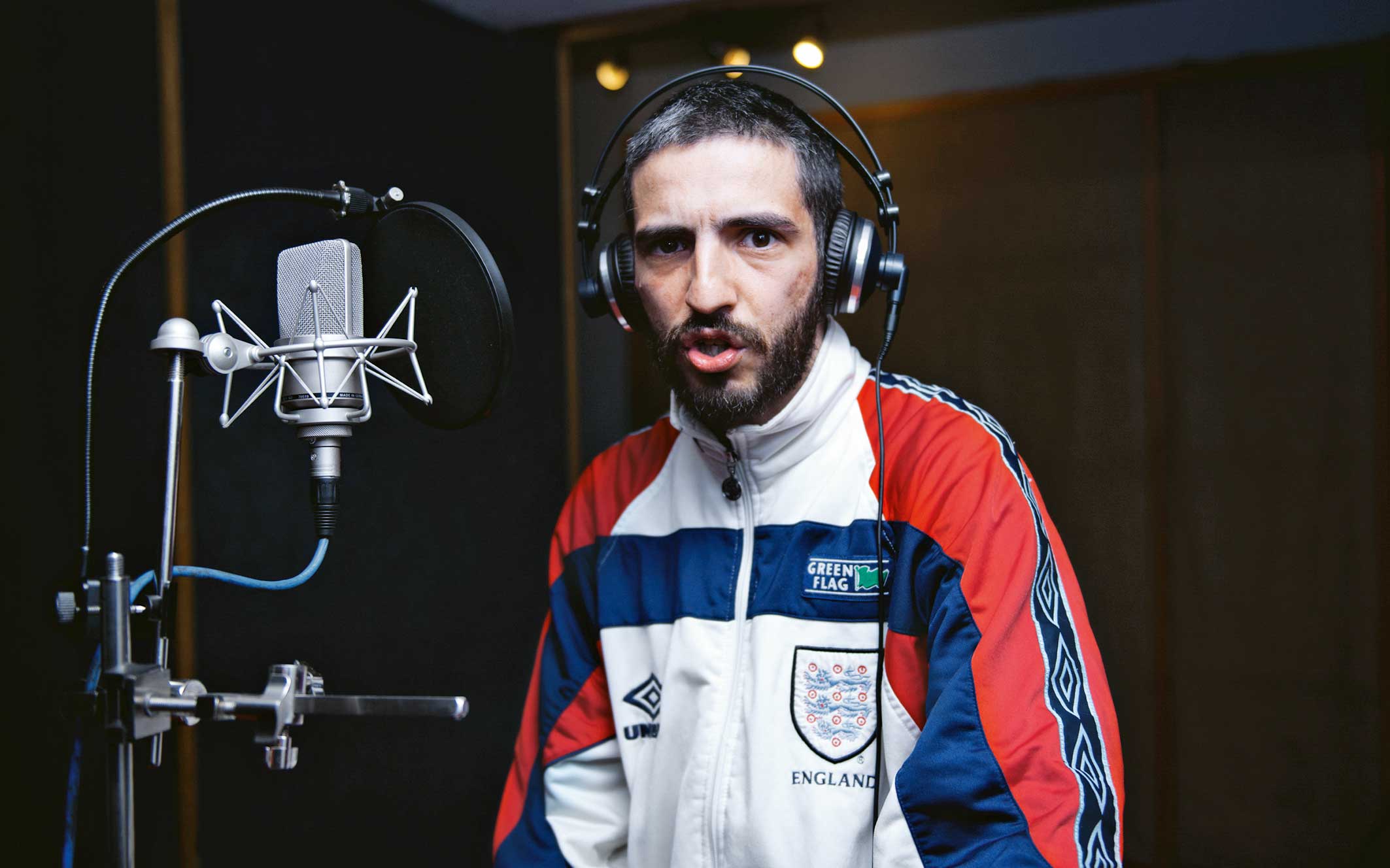
LEX
© Dimitris Mougkos
“You been lost for some time and I want to talk / grab your bike and come down so we can meet up,” says LEX in one of his most famous songs. From the busy port to the city’s quiet side streets, thousands of young city residents use bicycles to move around, and many of them find their main source of expression through hip hop. LEX, aka Alexis Lanaras, is regarded as one of the best in this field, with lyrics laced with accusation but also hope for a brighter future. Behind the beats stands Dof Twogee, the producer who has defined the sound of northern Greece in recent years. The sessions he occasionally organizes, a series of exclusive recordings, are similar to the radio freestyles that have been taking place internationally for years. Artists such as Tzamal, 12os Pithikos, Logos Apeili and, of course, Skive (the producer who brought trap music to Greece) have left their own marks on the city’s modern music scene.
Along with new musical artists, there are local record labels as well. Founded in 2021, Black Stars Records supports promising artists such as Banshee, a 22-year-old rapper studying medicine at the Aristotle University of Thessaloniki. With a different focus but similar philosophy, Dinara Records promotes the local indie scene. Its recent releases includes the debut of Tuflon, whose music has been dubbed “jazztronica,” as well as the album “Now What?” by indie pop band Chasing Bone.
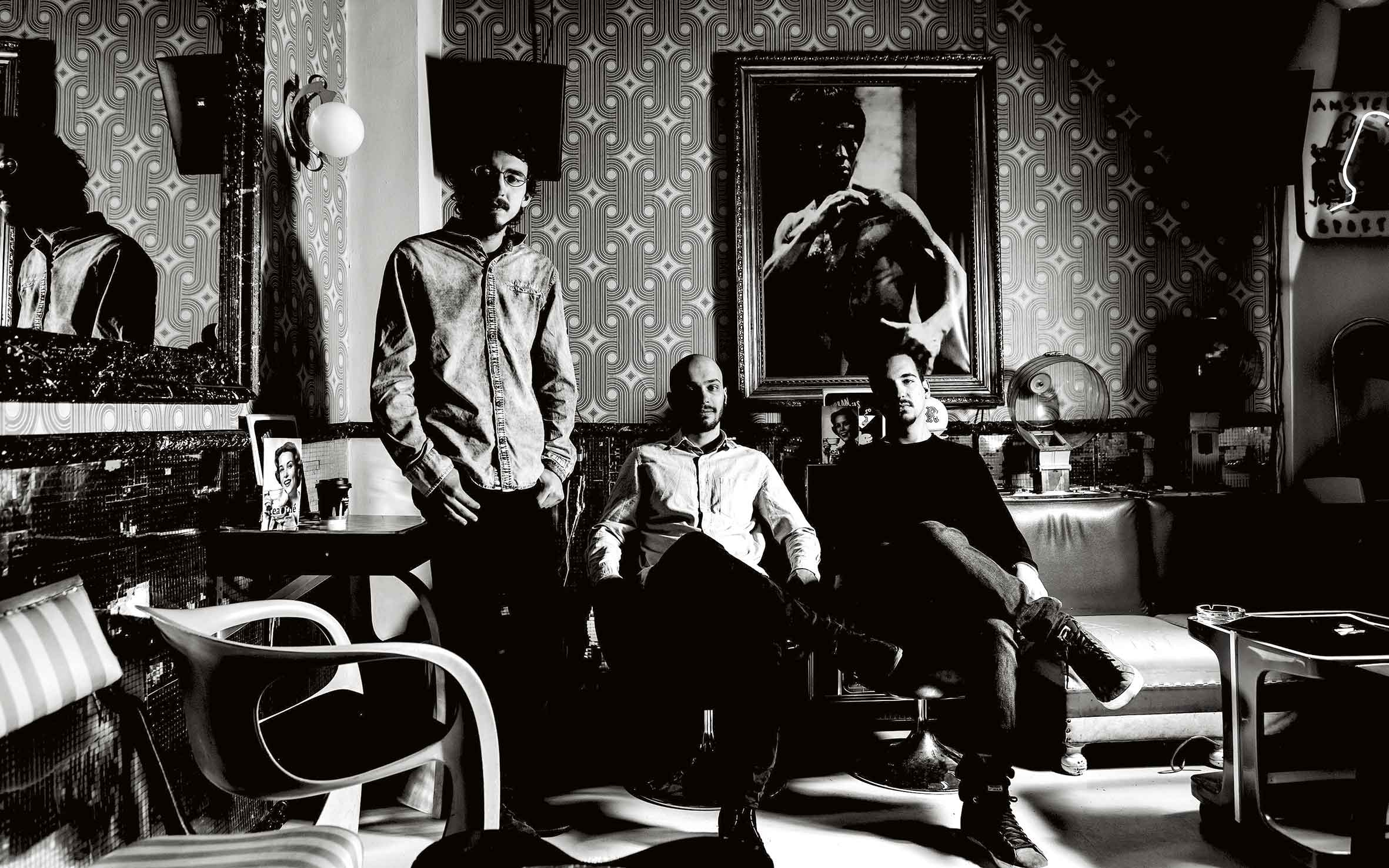
Yako Trio
The city’s jazz scene may not be as active as in Athens, but it certainly has passion. The Yako Trio are musicians who traveled to many different parts of the world before returning to their hometown and fusing their musical journeys with the sounds of a multicultural city. Their new album, “Odes Sea,” which should be released this winter, features two world-famous saxophonists: Swiss-born Nicolas Masson of ECM and James Wylie from New Zealand. For those in search of experimental music, May Roosevelt offers something special. Composer, producer and classical violinist, she became well-known for playing the theremin, a musical instrument that’s controlled without physical contact, with moves resembling those of a sculptor.
Giannis Aggelakas, former frontman of the band Tripes and a well-respected figure in the city’s music scene, is also part of the avant-garde. In one of his projects, a collaboration with cellist Nikos Veliotis, he superimposes his commanding deep-toned voice on otherworldly sounds, creating a mystical atmosphere for a quiet and focused crowd. The recording studios attract talent, too. Popular bands who don’t live in Thessaloniki often choose to record albums or singles at the legendary Magnanimous Studio, while the Royal Alzheimer Hall in the Epanomi area boasts its own history.

May Roosevelt
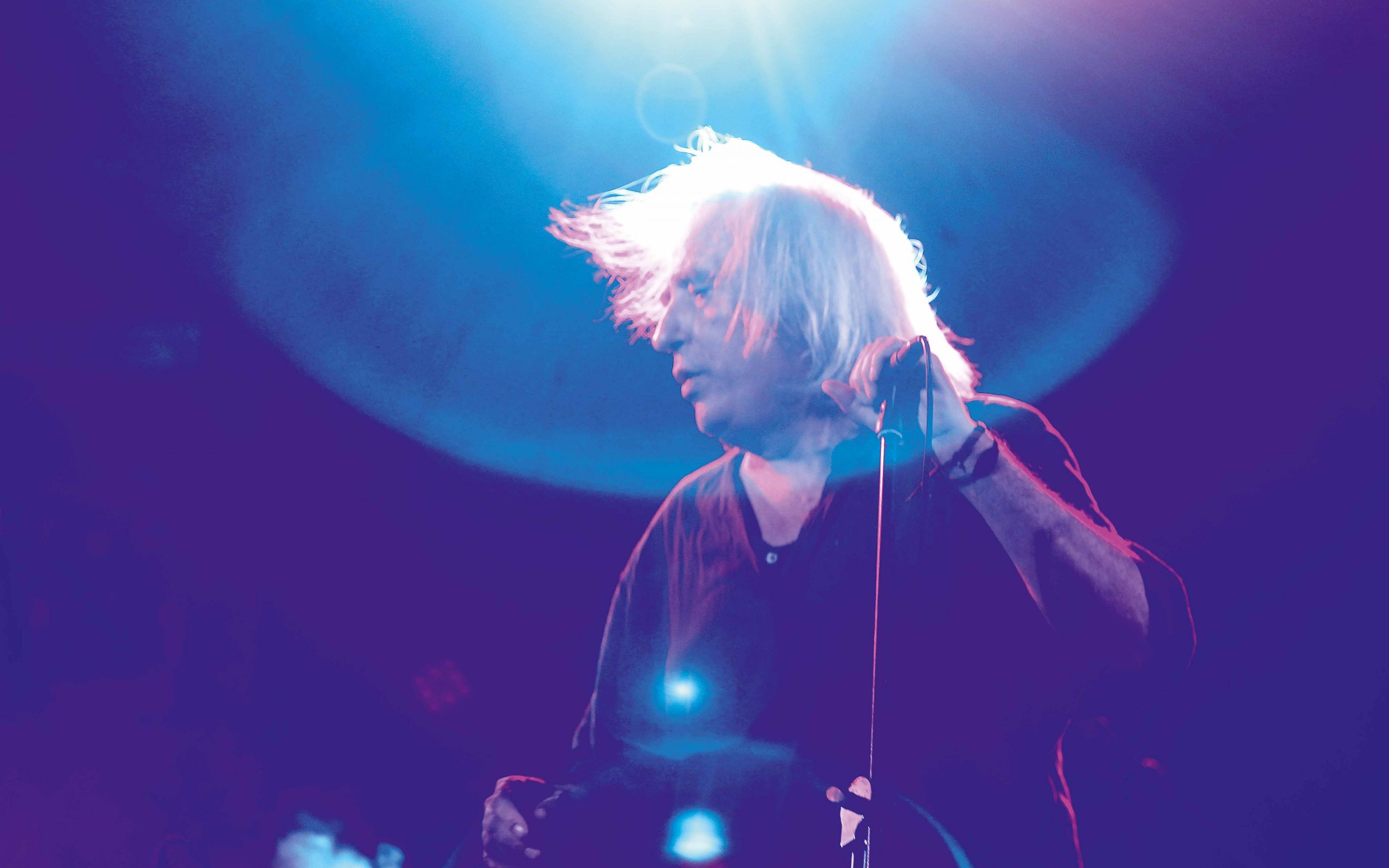
Giannis Aggelakas
Most of the aforementioned artists, as well as the spaces that host them, are identifiably Greek, but there’s one type of entertainment, a genre in which Thessaloniki has had a continuously strong presence throughout the years, that’s the quintessence of Greekness: the bouzoukia, those nightclubs (named after the musical instrument, the bouzouki, which takes center stage) where popular Greek music is performed live. Even though the bouzouki itself tends to get lost in the overall decibel output and the modernized arrangements of urban folk songs, these spaces are still called bouzoukia, and they operate as temples to song and dance; here, you’ll find late-night music, impressive outfits and traditions such as dancing on tables, throwing carnations on the stage and, although it’s rare these days, the breaking of plates.
Many famous singers began their careers at these bouzoukia: Marinella, Pashalis Terzis, Vasilis Karras, Antonis Remos and Despina Vandi, as well as more recent singer-entertainers such as Paola and Makis Dimakis. Today, despite an ongoing pandemic and the aftereffects of an economic crisis, the city’s residents and visitors continue to enjoy the bouzoukia, although attendance is down from previous years. Pyli A, Mouses en Horo, Fix and Stage Live are some of the most famous such places, and just as tourists should try a city’s local delicacies, so should a night at the bouzoukia be part of the experience for first-time visitors to Thessaloniki, no matter their musical taste and despite the fact that these establishments have, in fact, both their loyal fans and sworn enemies among the locals.
Thessaloniki offers so many options for entertainment to suit all tastes, but many people in the city’s cafés and bars are still nostalgic for the old Thessaloniki – the explosion of rock music, authentic places for listening to urban folk songs, and the sense of community. On 22 Pavlou Mela Street, where Tsitsanis’ old joint once stood, there is now a clothes store. And yet, as Giannis Aggelakas says in the song “Giorti,” in his thick, characteristic Thessaloniki accent, “there’s something that has not yet been lost.” Perhaps it’s a thirst for what is to come. You can hear it in LEX’s serious lyrics, in the party atmosphere of Souled Out, and in the sound of that unknown band rehearsing today in the hopes of performing for you tomorrow.
Discover Greece’s islands in September with...
This short walk takes in eleven...
From postmodern bougatsa to wood-fired pizza...
The West Wall Collective revitalizes Thessaloniki’s...